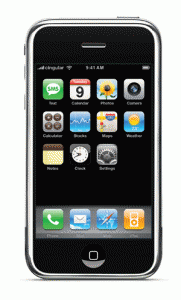March 21, 2012
Click here for the full written transcript of this podcast episode.
In this Mar 21, 2012 free audio podcast: Does Cold Thermogenesis Work For Fat Loss? Also: metabolic typing and blood type diets, ultra-running advice, ways to recover from surgery, how to mentally deal with accidents, how to train for tough mudder, strategies to become a faster runner, all about D-aspartic acid and aromatase inhibitors, and fueling for a 17 hour Ironman.
Do you have a future podcast question for Ben? click Ask a Podcast Question at the bottom of this page, Skype to “pacificfit” or scroll down on this post to access the free “Ask Ben” form…
Remember, if you have any trouble listening, downloading, or transferring to your mp3 player just e-mail [email protected]. Also, please don't forget to leave the podcast a ranking in iTunes – it only takes 2 minutes of your time and helps grow our healthy community!
—————————————————–
Special Announcements:
Ironman Coeur D' Alene Workshop – 12 Weeks To Race Day – This is a free workshop coming up March 24 at 6PM in Coeur D' Alene, ID, at Pilgrim's Market on 4th st. Join triathlon coach and Ironman athlete Ben Greenfield, from BenGreenfieldFitness.com, as he teaches you exactly which workouts to do, which foods to eat, and how to prepare in the final 12 weeks leading into Ironman CDA. Whether you plan on competing this year or next, or even if you're doing a different Ironman than Coeur D' Alene, you'll learn valuable tips and tricks for ensuring you're 100% confident on Ironman race morning. There will be ample time for Q&A if you have specific questions to ask Ben.
50% Discount on Triathlon Coaching – You heard him interviewed here, on “Why Running Drills Are Bad For You” … now you get 50% discount on your first month of coaching with Graeme Turner. Just use code “COACHGRAEME” at https://bengreenfieldfitness.com/coachme
TrainingPeaks has posted – a free replay of Ben's “Eating For Endurance” webinar.
Superhuman Coach – If you are a coach or personal trainer who wants to join Ben Greenfield's mastermind group, and get access to a monthly meeting with Ben, coach forum, and 10 webinars on Performance, Fat Loss, Recovery Digestion, Brain, Sleep and Sexual Health, along with Ben's “Triathlon Coach Guide” book and his “Triathlon Coach Insider” program, then visit www.superhumancoach.com
Thailand Adventure – Join Ben in Thailand this winter for the triathlon adventure of a lifetime at the Laguna Phuket Triathlon and the Asia Pacific 70.3 Triathlon! Get all the details at www.pacificfit.net
—————————————————–
News Flashes:
To get these and other news flashes fresh off the press every week, follow Ben on Twitter and Google+.
- It would be interesting to see if hypoxic swimming has a similar effect on boosting your hormone levels.
- Sure…if you're running 3 times a week recovery is overrated. But I've never met Ironman triathletes who don't benefit from ice, antioxidants, etc.
- How long does it take to recover after a marathon?
—————————————————–
Listener Q&A:
Tom asks:
I've been hearing a lot out of Jack Kruse, a neurosurgeon-gone-paleo, about cold thermogenesis for health and fat loss. I'd love to hear your take on cold thermogenesis for general health and/or fat loss, as well as its potential use as a training/recovery tool.
~ In my response to Tom, I mention this recent Get-Fit Guy article, and my previous interview with Ray Cronise.
Melanie asks:
I know you had an interview regarding metabolic typing, but I wanted to know how much stock you put in the details of these type of “diets”. I am a protein type and I know that is right for me, but I did the metabolic typing from the Wolcott group website and received a specific list of foods to eat and ones to avoid. Some of the ones for me to avoid are ones that are in the “eat” category in your food pyramid. For example, I'm supposed to rarely have yogurt, cabbage, berries, and completely avoid whey and broccoli. What is your opinion of the Wolcott metabolic type diet? Should I consider cross-referencing your diet and my metabolic type list and eat only what is a match? Also, along the same vein, can you quickly sum up your opinion on the Blood Type Diet? I'm a protein type on that one too, but again some of the foods you recommend would be a no for me on that one.
~ The movie Brock was thinking of is The Road To Wellville.
Horacio asks:
I'm about to run my first ultra running race in April, 84k Trail race in Patagonia. How fast should I run? I want to be fast but not bonk or have a cramp crisis. Last year I ran this same race but only the 42k version. I probably ran it near my anaerobic threshold or about 165-170 bpm… but for the 84k I plan to go much slower. This is my plan: I've been following Phil Mafftone's advice and I've trained mainly trying not to go over 180-age limit (that would be about 150 bpm) currently at that level I can run at 8 min/mile pace. My plan is to run with a heart monitor and not increase 150 bpm on the race. Does this makes sense? I feel that with proper fueling I should be able to make it. I'll try to eat all I can during race, about 300 calories per hour if my stomach can handle that amount of gels.
Brian says:
The reason I write you is I have a friend that is 23 years old and has just been diagnosed with a rare (for his young age) adeno carcinoma of the duodenum. He is going to have a short regiment of chemo before a very complex surgery to remove the mass that is about the size of two grapefruits. My question to you is, what are your thoughts on anything he can do nutritionally through food or supplementation that will give his body the support and healing power it needs. I realize you are not a medical Dr. but respect your knowledge in the nutrition realm more than most medical Dr.s :)
Trevor says:
I am concerned triathlete. I have ambitions bigger then what my dreams can handle but it is unfortunate that I have had my dreams squashed again. I was watching the news and saw yet another rider hit by a car from behind. I wonder, in your experience, how does the community we are a part of deal with this? I am love the sport and it has saved my life in many ways but I am worried that my obsession of being active is now becoming a threat to my life. It really sucks to see people get hit by cars and then mentally be off your game due to the vivid images of past accidents. I have been training for about two years and the first day I got on bike, a bike rider got killed in front of me. I just wanted to hear if you had anything on this.
~ In my response, I recommend the book Eyes Wide Open.
Lia asks:
I have signed up for my first ever event – a Tough Mudder, the inaugural Mudder in Vegas. I looked through archives on the site and didn't see any recommendations on how to train for an event like this. I have quite a bit of time because the event is not until October 6. The suggestion on the Tough Mudder website is pretty slim, and I'd love to hear what your approach would be.
~ In my response about the Tough Mudder, I reference this workout.
Joe asks:
I am 53 years old. In Triathlon for about 12 years (Sprint to IM). I have asked this question to many and I just get a shoulder shrug. When I started Tris, I couldn't swim, I had never biked, but was a good high school runner. I could run 51 secs for the 400m. My problem is I cant run. I can put in a solid swim and good bike but my run is poor. Stand alone times for a 1500m swim would be 25minutes for a 40km bike 65 min and for a 10km run 48 min. (non tris) I have done intervals, LT runs, hills etc, I have read all the books and have tried everything I even bought power cranks and stand alone run blocks. Why can't I run?
Josh says:
In a recent podcast you mentioned natural testosterone enhancement using D-aspartic acid with an aromatase inhibitor. Could you please speak a little more in depth on this subject? Including sources, dosing, detrimental effects, and whether you cycle on and off.
~ In my response to Josh, I recommend Hard Rhino D-Aspartic Acid and Myomin aromatase inhibitor.
Diane asks:
I'm a 53 year-old woman (120 lbs., 5 ft. 6 in. tall) and am doing an Ironman for the first time this summer. I've done two 70.3 triathlons (about 7 hours to complete), one in 2011 and one in 2010, and some sprint and Olympic distances. By my calculations I will be lucky if I finish the IM in the 17 hours, mostly because it's a hilly course (Mt. Tremblant). My question is about nutrition during the event (although I have many more questions). I anticipate taking 2 hours for the swim and I've read that it might be wise to take a gel at the half-way point during the swim. Do you think that's necessary? Because I'll be on the course for so long how should I manage my nutrition intake? Because I'm slow and working at a lower intensity should my total nutrition intake be the same as someone my size who finishes in 12 hours? Any information that you could provide in how many calories/carbs to take during a 17 hour event would be appreciated.
~ In my response to Diane, I mention these amino acids.
Prior to asking your question, do a search in upper right hand corner of this website for the keywords associated with your question. Many of the questions we receive have already been answered here at Ben Greenfield Fitness!
====================================== ======================================
Brand new – get insider VIP tips and discounts from Ben – conveniently delivered directly to your phone! Just complete the information below…
| First Name | |
| Last Name | |
| Cell # (1+area code): | |


Isn't shortening telomeres a bad thing? I thought that you wanted to keep them from shortening, which is what calorie deprivation and cold does. Did I mix it up?
Dude, did I say shorten? If I did that was a total brain fart. It should be lengthen.